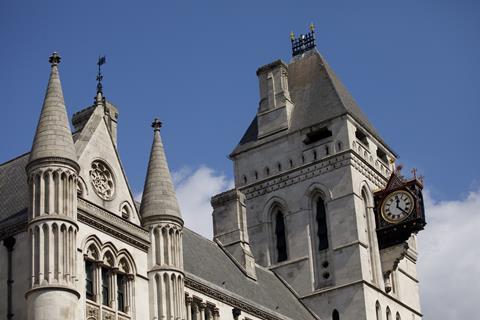A former solicitor struck off for advising an undercover BBC reporter how to make a fraudulent visa application has been subjected to an extended civil restraint order following his latest challenge to his ban.
Sheikh Asif Salam was an immigration solicitor and sole practitioner at Cheshire firm Salam & Co Solicitors. He was recorded covertly advising an undercover journalist on how to obtain fraudulent accountancy evidence for a spousal visa application. Extracts from the recordings were broadcast on the BBC Radio 4 programme File on Four. Following a hearing before the Solicitors Disciplinary Tribunal, Salam was struck off the roll in 2023.
The Solicitors Regulation Authority brought two applications, before Ms Justice Obi sitting in the Royal Courts of Justice, to strike out Salam’s latest claim on grounds of abuse of process and for an extended civil restraint order.
Benjamin Tankel, for the SRA, said: ‘Mr Salam has made eight totally without merit orders in relation to these disciplinary proceedings alone. The SRA will be inviting my lady to find this is the ninth.’
He added that the ‘sheer number of applications’ by Salam was ‘out of proportion to the sheer complexity’ of the case. Between June 2017 to December 2018, there were ‘hearings of 59 applications of judicial review lodged by Salam, he said, '18 of 59 were found to be totally without merit’.
Tankel said: ‘Mr Salam’s skeleton argument in response to the civil restraint order is also damaging. He takes the position he does not accept any of the findings of the SDT. He continues to maintain he is the victim of a gross injustice and continues to maintain every single one of the applications he has made, no matter how much the tribunal and courts have found otherwise, was justified.
‘It has already been suggested by the High Court that the time may be approaching for a civil restraint order. That time has now come.

Read more
‘We held off making the application because we suspected, wrongly as it turns out, that the appeal would bring an end to the matter and it has not. I am sorry to say the weeks leading up to this hearing, Mr Salam renewed his campaign of writing letters to individual solicitors who were involved in this disciplinary proceedings…[it] looks like preparatory work for further claims.’
Salam, who represented himself, told the court that he had ‘practised for 45 years and had an unblemished career except for this thing’. He added: ‘I am not guilty. This is a problem... I am the one that has been the victim. My life has been destroyed these [last] eight years.’
Referring to the civil restraint order application, Salam said: ‘I am just trying to clear my name. I am just trying to get my honour back. I have every right to do that. It is not vexatious.’
Following the day hearing, the judge granted the SRA’s application to strike out Salam’s claim, finding it to be abusive, totally without merit and an abuse of process.
Salam ‘does not accept the findings of the SDT [and] does not accept the decision of the court’, the judge said, adding: ‘There is no conduct on behalf of the SRA that can properly be concluded as fraud. [Salam’s] claim is factually misconceived.’
Referring to the extended civil restraint order application, the judge said the court was ‘satisfied’ Salam’s conduct was vexatious.
The judge noted Salam’s ‘sustained refusal to accept findings’ and his choice to ‘challenge their legitimacy through repetitive complaints or claims’ in which he ‘returned to the same issues…not withstanding clear judicial findings rejecting them. Those warnings have been disregarded. In those circumstances I am satisfied the threshold [for an extended civil restrain order] has clearly been met.’
‘Looking at Mr Salam’s litigation in the round, he has a profound sense of grievance and an inability to accept defeat.'
The extended civil restraint order will be in place for three years. Salam was also ordered to pay £24,000 costs.






























